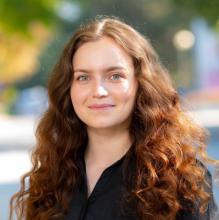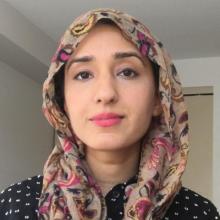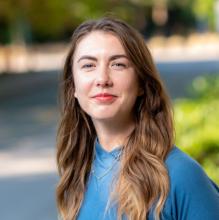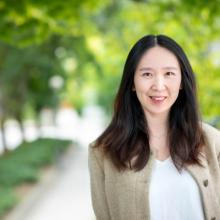I believe that formal linguistic research can contribute to language revitalization not just by documenting a language, but by ensuring that the research activities themselves are accessible and relevant to the community. I’m excited to explore this idea by conducting my doctoral research in total transparency, and with the participation of all the community members who wish to get involved in various ways.
Research Description
This research focuses on the grammar of scalar expressions such as 'Mary is tall' and 'Mary is taller than Marianne' in Ktunaxa, a language isolate spoken in British Columbia (Canada), and in Idaho and Montana (USA). Ktunaxa is undergoing revitalization, and documenting the language is critical as there are currently 30 fluent speakers. The project adopts a hybrid methodology to collect data: traditional fieldwork involving elicitation tasks such as translation, storytelling, and acceptability judgements is complemented with the recording, transcription and analysis of ecological (undirected and spontaneous) conversations in Ktunaxa. The goal of adopting such a hybrid methodology is twofold: it allows me to track variation in the grammar of scalar expressions in a conversational context, it also provides a space for speakers to enjoy their traditional language outside of the formal structures where it is usually spoken and heard nowadays. This research project is conducted in collaboration with the ’Aq̓am community, a Ktunaxa band located outside of Cranbrook, BC. Members of the community who are interested in language work are welcome to attend to and participate in all research activities.
What does being a Public Scholar mean to you?
I believe that formal linguistic research can contribute to language revitalization not just by documenting a language, but by ensuring that the research activities themselves are accessible and relevant to the community. I’m excited to explore this idea by conducting my doctoral research in total transparency, and with the participation of all the community members who wish to get involved in various ways. I think this approach will lead to greater capacity building for language documentation and revitalization, while allowing for the creation of a body of knowledge that reflects both Ktunaxa and Western ways of knowing.
In what ways do you think the PhD experience can be re-imagined with the Public Scholars Initiative?
Community engagement and language work are often seen as separate from formal linguistics. In reality, linguists who work on endangered and underdocumented languages, especially in Canada, work very closely with community members. As such, students are involved in community engagement and language work from the very beginning of their doctoral research. There is currently little official recognition of the partnerships between communities and linguists that make research possible. The Public Scholars Initiative is the ideal venue to set a precedent in recognizing the value of public scholarship and of community engagement in formal linguistics.
How do you envision connecting your PhD work with broader career possibilities?
With the Indigenous Languages Act, understanding where research and language revitalization meet is essential to develop and maintain relevant funding programs that support the reclamation, preservation, revitalization, maintenance and strengthening of Indigenous languages. Linguists within academia, in non for profit organizations and in the public sector, who are trained in fieldwork and community engagement could play an important role in the current context by mobilizing their knowledge and skills and putting them at the service of the communities who might need them.
How does your research engage with the larger community and social partners?
My research project engages the Ktunaxa community I work with by ensuring that research activities provide opportunities for community members to pursue their goals of speaking, documenting, learning, teaching and revitalizing the Ktunaxa language. Aspects of the research project related to conversational recordings have been developed with community members from the early days.
Why did you decide to pursue a graduate degree?
When I reached the end of my master’s program, after years of gruelling research that made me feel like nothing would ever make sense again, I started stumbling upon exciting new research questions. I was hooked once again. Oftentimes, things still don't make much sense, but I'm as excited as ever to be doing research.
Why did you choose to come to British Columbia and study at UBC?
I chose the department of linguistics at UBC because it is recognized for its work on Indigenous languages and its specialization in fieldwork. The department is also known for involving students of all levels in research and for its commitment to providing excellent training and mentorship. I was overjoyed to be admitted, and several years later, I am thrilled to be part of such a vibrant research community.
The Public Scholars Initiative is the ideal venue to set a precedent in recognizing the value of public scholarship and of community engagement in formal linguistics.




